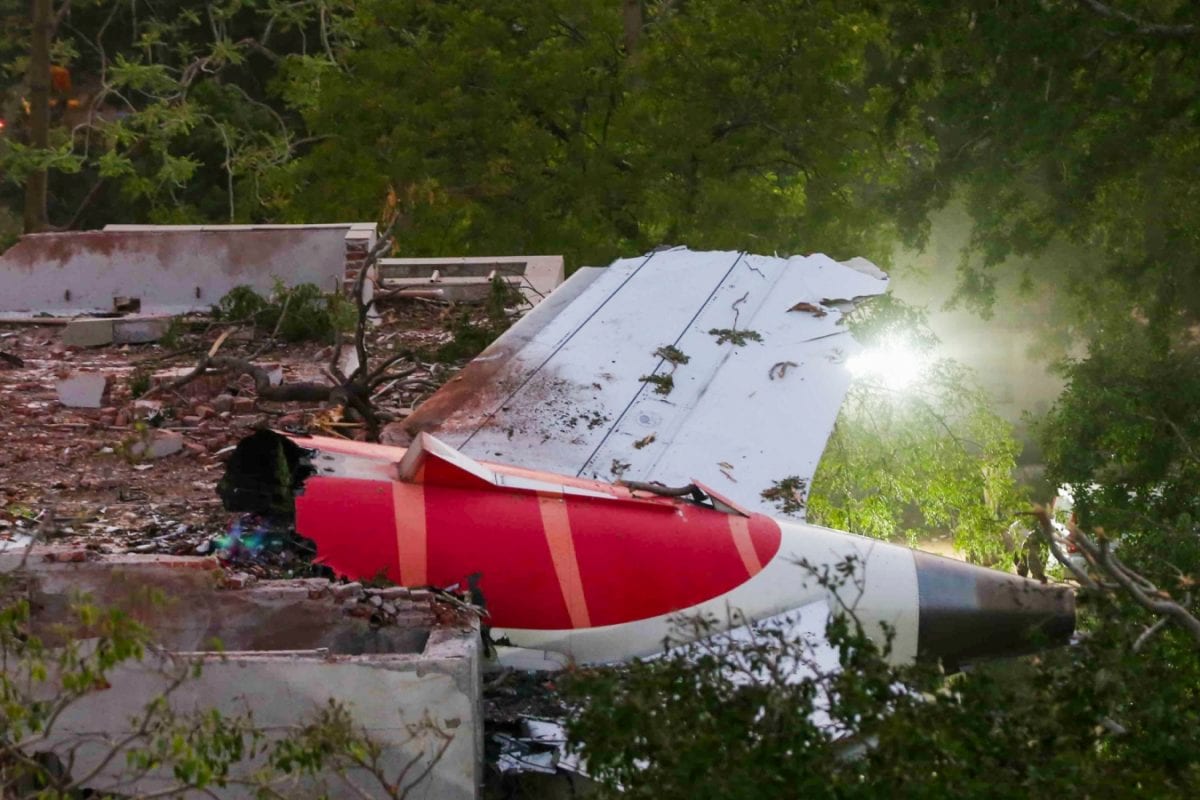

The families of the victims of the Air India Flight 171 crash are voicing strong objections to the preliminary investigation report, with some calling it a "cover-up" and rejecting any suggestion of pilot error. The Air India AI 171 crash occurred on June 12 when the London-bound Air India Boeing 787-8 aircraft crashed shortly after takeoff from Ahmedabad's Sardar Vallabhbhai Patel International Airport. The aircraft hit a hostel building at BJ Medical College, killing 241 of the 242 people on board. The Aircraft Accident Investigation Bureau (AAIB) released its preliminary report into the crash on Friday.
A central point of contention arises from the report's findings concerning the fuel control switches. Data from the Enhanced Airborne Flight Recorder (EAFR) indicated that the fuel cutoff switches for both engines moved from the "RUN" to "CUTOFF" position within a one-second interval shortly after takeoff. The report also captured cockpit audio in which one pilot asked the other, “Why did you cut off?” with the other responding, “I did not”.
This has led to speculation that the pilots may have been responsible, either inadvertently or deliberately, for the engine shutdown. However, relatives of the deceased are wary of prematurely assigning blame to the pilots, who they believe cannot defend themselves. Some families are demanding a more thorough and independent investigation to determine the true cause of the crash. They are concerned that the report might be protecting the airline, Boeing, and the Indian government.
"They want to blame dead pilots who can't defend themselves," said Ameen Siddiqui, who lost his brother-in-law, sister-in-law, and niece in the crash. He, along with other family members, find it hard to believe that the pilots, experienced and seasoned professionals, would intentionally switch off the fuel supply.
Other relatives are questioning the technical condition and maintenance of the aircraft. Yashpal Singh Vansdiya, who lost both his parents in the crash, wants clarification on whether all mandatory pre-flight checks were completed. He noted that the report's mention of a pilot asking about the fuel switch suggests potential technical issues.
The Indian Commercial Pilots Association (ICPA) has also condemned the insinuation that pilot suicide might be the cause of the crash, calling such suggestions reckless and unfounded. The Airline Pilots' Association of India (ALPA-I) criticized the report for its tone and direction, suggesting a bias toward pilot error.
Several aviation experts and officials have cautioned against jumping to conclusions based on the preliminary report, emphasizing that the investigation is ongoing and much could change. The AAIB has stated that experienced pilots, engineers, aviation medicine specialists, aviation psychologists, and flight recorder specialists are assisting in the investigation.
Meanwhile, some families have rejected compensation offers from Air India and are considering legal action against the airline and Boeing. They are determined to uncover the truth behind the crash and ensure accountability for the loss of their loved ones.
The U.S. Federal Aviation Administration (FAA) communicated to international aviation authorities that its interim review of the Air India Boeing 787-8 crash revealed no immediate safety concerns related to the aircraft's engines or systems. The FAA also referenced its December 2018 advisory, which highlighted the potential for the locking mechanism on the fuel supply switches to become disengaged.